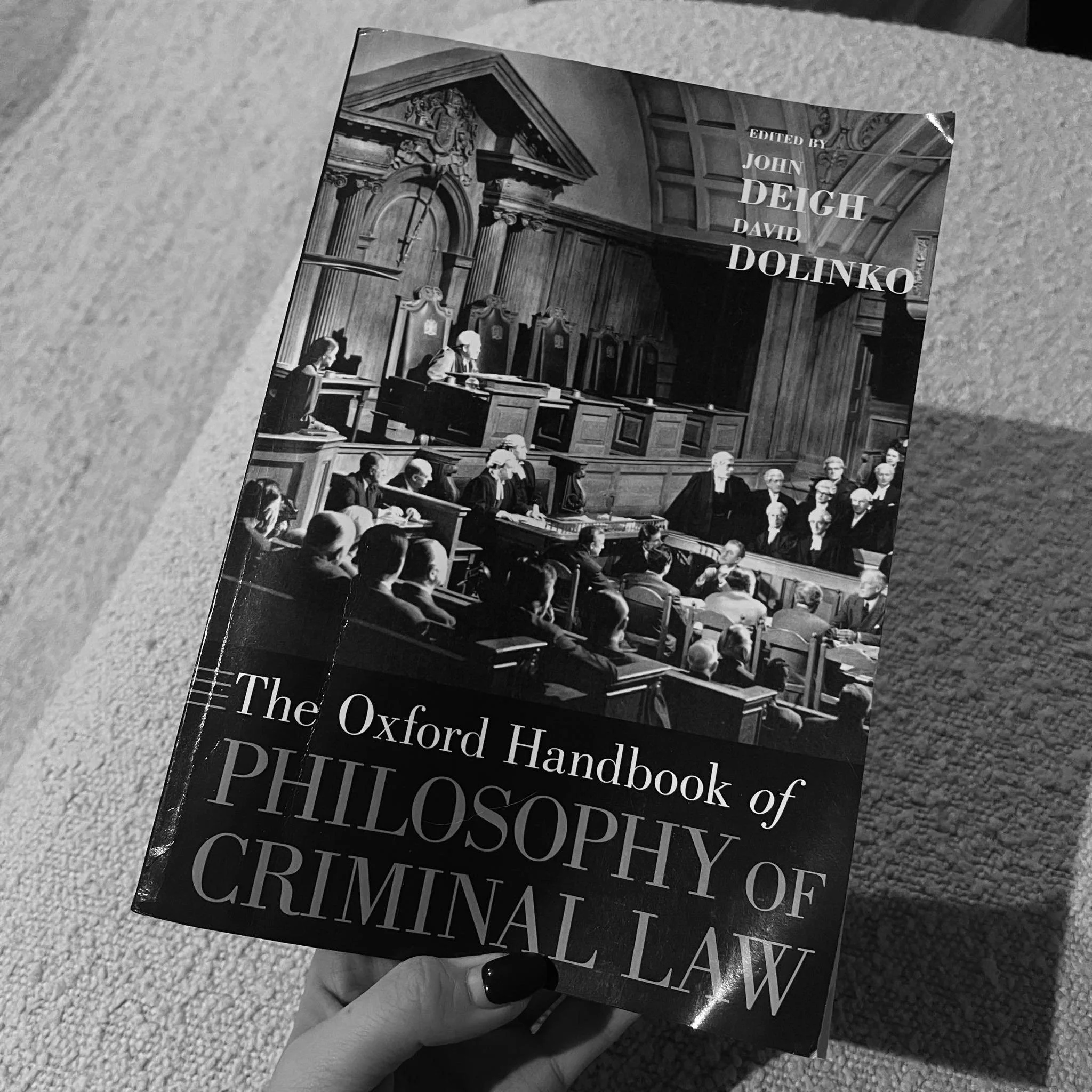The Oxford Handbook of Philosophy of Criminal Law by John Deigh/David Dolinko
Blackmail is a crime.
Why though?
The mere act of revealing true information about others is not necessarily criminal, not even if it can cause harm, not even if it is disclosed with malicious intent.
Likewise, the act of selling and negotiation does not inherently transgress legal boundaries.
It is only when we combine the former and latter then it constitutes a crime.
The conundrum of blackmail persists within the realm of legal and moral deliberations, prompting contemplation on its criminal classification. Another perplexing quandary is criminalizing expressions such as hate speech. The edifice of a democratic society is underpinned by the venerable principle of freedom of expression, a bastion that safeguards the prerogative to voice dissent, even when such utterances transverse into realms deemed provocative. This liberty is critical, engendering a milieu ripe for unfettered discourse, proliferation of ideas, and capacity to critique authority and prevailing societal norms. If we are to sacrifice some freedom of speech to the state, it should be for valid reasons.
So why is something a crime?
Because the law said so.
While the response may suffice in practical terms, it fails to delve into the deeper underpinnings of legal construction. What philosophical justifications lie at the heart of our legal framework when we deliberate its formation and application?
The Oxford Handbook of Philosophy of Criminal Law is a book that unravels the philosophical threads that define our understanding of crime and punishment. The book features seventeen historically critical essays by scholars and probes the depths of foundational concepts such as culpability, moral agency, punishment, and the nature of justice itself. It covers a range of topics including criminalization boundaries, obscenity, hate speech, blackmail, rape law, attempts, accomplice liability, causation, responsibility, justification, excuse, duress, provocation, self-defence, insanity, the death penalty, mercy, preventive detention and alternatives to traditional punishment.
Several papers stood out to me: Dworkin’s exploration of the boundaries of criminal law, Berman’s insightful analysis of blackmail, Husak’s examination of the purported act requirement in criminal law, Moore’s nuanced discussion of causation, and Duff’s contemplation on the concept of mercy. I cannot possibly cover everything but will highlight a few.
Gerald Dworkin's "The Limits of the Criminal Law" presents a general examination of traditional prespectives on the subject, as articulated by John Mill, Devlin, and Feinberg, and juxtaposed with contemporary viewpoints including his canonical contributions to the discourse. Rather than simply rehasing his prior work or introducing yet another theoretical framework into an already crowded arena, Dworkin offers an analysis of competing methodologies concerning the investigation of the limits of criminal law. His essays serve as an introduction to scholars aiming to clarify their own methodological approach to thinking about the moral limits of the criminal law.
Adhering to the theme of the moral limits of the criminal law, Larry Sumner's "Criminalizing Expression: Hate Speech and Obscenity" tackles the question of when, if ever, is the harm resulting from expression reaches a severity that warrants intervention through criminal sanctions. How to balance freedom and protection, ensure public order and liberty, determine level of harm, prevent overbreadth and vagueness when define what languages are prohibited.
Mitchell Berman’s contribution takes up the crime of blackmail, which he describes as amongst the most intriguing and complex puzzles in criminal law theory. True to his style, Berman injects his own blend of astuteness, lucidity, and humor into untangling this puzzle. Ultimately, he contends that the answer lies within the coercion-centered perspective on blackmail.
Doug Husak’s provocative essay, “The Alleged Act Requirement in Criminal Law,” challenges the existence of such requirement in Anglo-American legal systems. According to Husak, the purported act requirement, if it exists at all, mandates that criminal liability stems solely from a defendant’s action rather than their “failure to act”. Despite widespread assertions across criminal statues, case law, the Model Penal Code, and numerous textbooks, affirming the presence of a general “act” requirement, Husak contends that these claims arise from two fundamental confusions. First, there is a confusion regarding the definition of what constitutes acts. Second, there is a misunderstanding about how the act requirement should be articulated. Husak expresses frustration, questioning how one can confidently assert the existence of an act requirement while being muddled on these fundamental issues.
Andrew Ashworth's treatment of attempts demonstrates his unparalleled ability to set out both the overarching context and fine-grained details of criminal law doctrine and theory with clarity and precision. He presents a comprehensive overview of the three most vexing issues in attempt liability: fault requirements, conduct requirements, and the so-called impossibility defense. After setting out a comparative analysis of US and UK law on each and surveying the most influential and cogent philosophical treatments of these issues, Ashworth gestures toward an intriguing solution to resolving the confusion surrounding attempt liability: "why do we not," Ashworth queries, instruct our law reformers to consider on each occasion what they think should justifiably be criminalized, rather than relying on the rather capricious operation of the general presumption of inchoate liability.
Some other contributions in the volume focus primarily on legal doctrine with relatively scant engagement with philosophy, while others offer primarily philosophical reflections with scant engagement with legal doctrine, regardless, most of the contributions illustrate complex intersections of law and philosophy and I quite enjoyed them.
As societies evolve and legal systems adapt to shifting norms and values, the philosophy of criminal law emerges as a dynamic crucible of inquiry, grappling with timeless dilemma meanwhile confronting novel challenges. From the complexities of legal moralism to the implications of neuroscience for notions of criminal responsibility, this book offers a vista of the philosophical landscape that informs our quest of justice.



